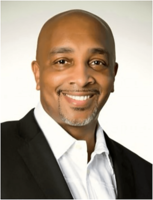Life Coach vs Therapist: Which Is Right For You?

If you're constantly feeling overwhelmed and struggling with clarity, or stuck in a vicious cycle of self-sabotaging behaviors, perhaps that's a sign that it's time to seek professional help. The question is, how to know which type of expert is right for your needs? Which is better, a life coach or a therapist? Here are some things to consider in making the right choice to get you back on track.
The difference between coaching and therapy
The primary difference between coaching and therapy is that therapy typically deals with past trauma in a person's life, intending to help the client understand how it's disrupting their life today. On the other hand, coaching is typically associated with what you desire to change and how to evolve your life.
If your goal is to identify what you can do to get more clarity about a vision for your life, an ICF credentialed life coach is definitely what you need. But, if you're dealing with a trauma that is impeding your ability to function in everyday life, you would probably be better off working with a therapist.
If your desire is comprehensive self-improvement, many people tend to combine both coaching and therapy. Coaching and therapy pair well when all parties (you, the coach and the therapist) work as a team. To be productive, it is mandatory that the two clinicians are not competing with each. When both parties use their methodologies to increase their client's potential for success, the outcome is typically life-changing.
What to look for in a coach or a therapist?
If you're going to work with a coach, they need to possess an ICF credential, preferably at the PCC or MCC level or possess a National Board Certified -Health and Wellness Coach, NBC-HWC certification. Any legitimate coach is credentialed by a credible organization that is not commercial, with a robust vetting process and one that has a continuing education requirement.
Look for an expert that resonates with you. Your clinician should clearly understand your background, lifestyle, and core values, so they thoroughly recognize your concerns, blind spots, and challenges. Do your research by reading reviews, exploring their methodologies and verifying their credentials. Top tier coaches typically are featured lectures for tier-one university coaching programs, have done Ted talks, are published authors, and are experts for media and news outlets.
If you decide to combine coaching and therapy and notice that either party isn't willing to work as an ensemble cast in the theater of your life, that should be your first red flag. Great clinicians have no problem with collaboration because prominent people welcome effective teammates. Such professionals have one goal: moving their clients toward wholeness and having them function at their best.
How long do coaching and therapy last?
Coaching and therapy sessions usually take place once a week or every ten days and last about an hour. The goal of any expert should be to get their client to the point of autonomy and self-actualization. When you achieve the goals for this season in your life, you should feel confident enough to create your life path while focusing on new goals and objectives.
Since it's good to decrease the frequency of those visits, at a certain point, it's also essential to have someone on retainer, so when you find yourself falling backward, you can go back in and get back on track because there is always going to be a new challenge in your life.
What can a coach or therapist do for you?
A great clinician is there to help you with relationships, life events, and things in your past that can be problematic in your present. A great coach is looking at the things that helped you achieve and overcome obstacles in your past so you can tap into those strengths in the present while helping you find clarity and alignment with your core values. But neither of those parties should be directing your path.
If you think that you don't know what you should do or how to react when facing challenges, the greater truth is - yes, you do. You just haven't looked at it from enough angles to reach a reasonable conclusion. The job of a coach or a therapist is to help you see things with clarity from more perspectives to enable you to make a better or more strategic decision.
If you decide to seek professional help to work on yourself, your insecurities, and your goals, keep in mind that great experts do not offer solutions. When you see a coach that gives you solutions rather than things to consider when choosing a solution, that's not coaching; that's consulting.
Consultants give you answers. Therapists help you understand your past experiences and how they affect your present. At the same time, coaches give you the tools to plan strategically and effectively while using what's indigenous to you to make the right decision for yourself.
The fact that you know something is wrong and you want help is a big deal. That is the first step toward wholeness. Being vulnerable and authentic is primary.
Set aside the time and money you need to invest in getting professional help, and make sure you are genuinely committed to what your coach and therapist require.
Healing takes time, energy, and effort, but if done right (and yes, you will need to do your homework), it will help you reach your desired goals while becoming a happier and more fulfilled version of yourself.
Lastly, don't put it off. Life won't wait for you. It never does.
Dr. D. Ivan Young is a highly sought-after keynote speaker and media personality. Dr. Young an expert on human behavior and building fulfilling relationships, and a Master Credentialed expert on personality type. Dr. Young is an ICF Credentialed Master Certified Coach, Certified Professional Diversity Coach, a National Board-Certified Health and Wellness Coach, as well as a Credentialed Master MBTI Practitioner.
His TEDx Talk on Emotional Intelligence: Using the Laws of Attraction, has received over three million views. He combines his knowledge, vast experience, and exclusive theories to help motivate, educate, and energize any audience, understanding how to connect ‘human to human’ even when addressing the masses. For more information visit www.drdivanyoung.com and www.divanyoung.com.

In my eyes there is no reason why we can't assist a transgender to find out where they want their lives to go and assist in finding their path, where on the other side a therapist assists in the many past trauma. For me I have created the expression of "Gender finding" where it is up to the customer to find their path in a coaching environment.







